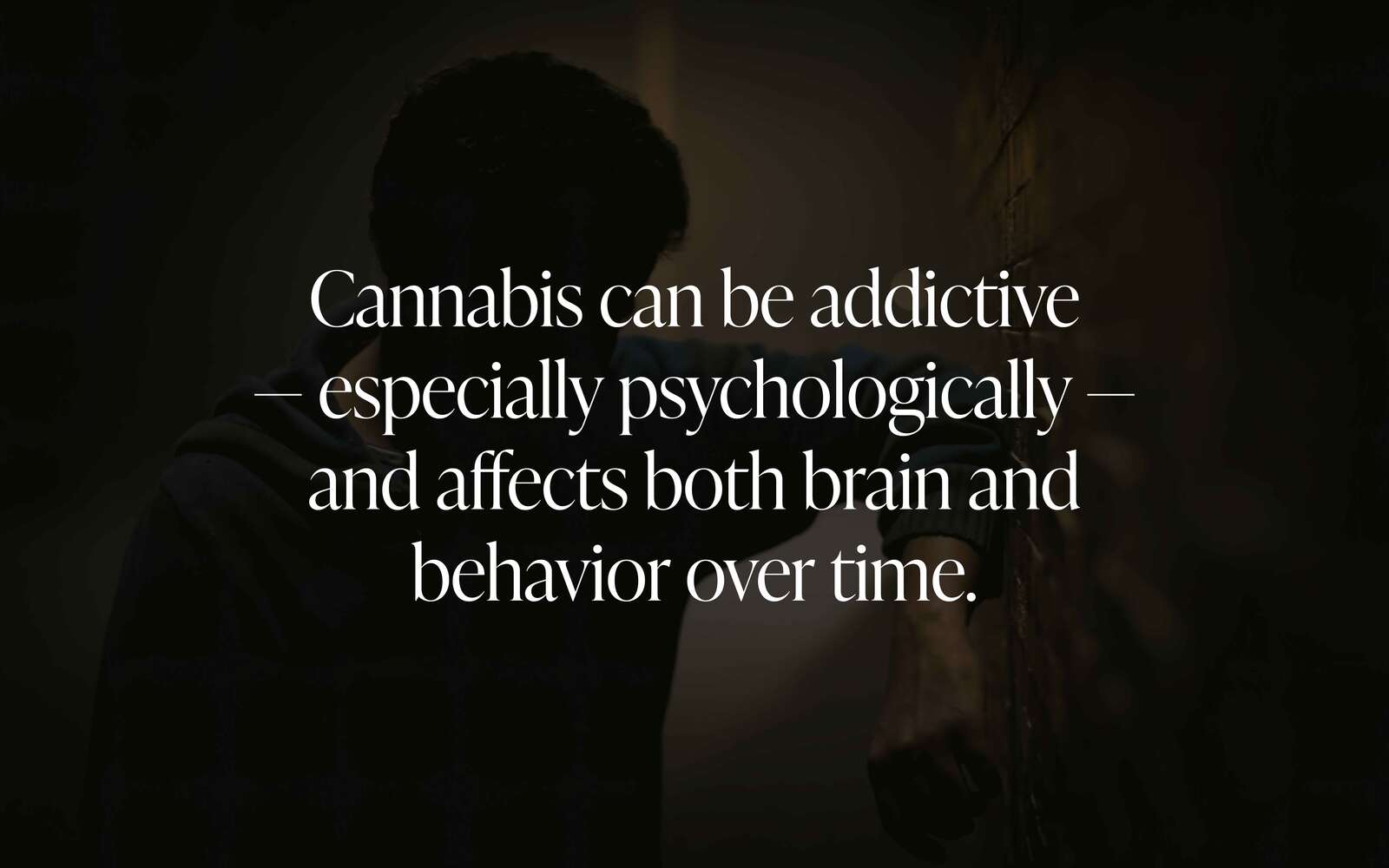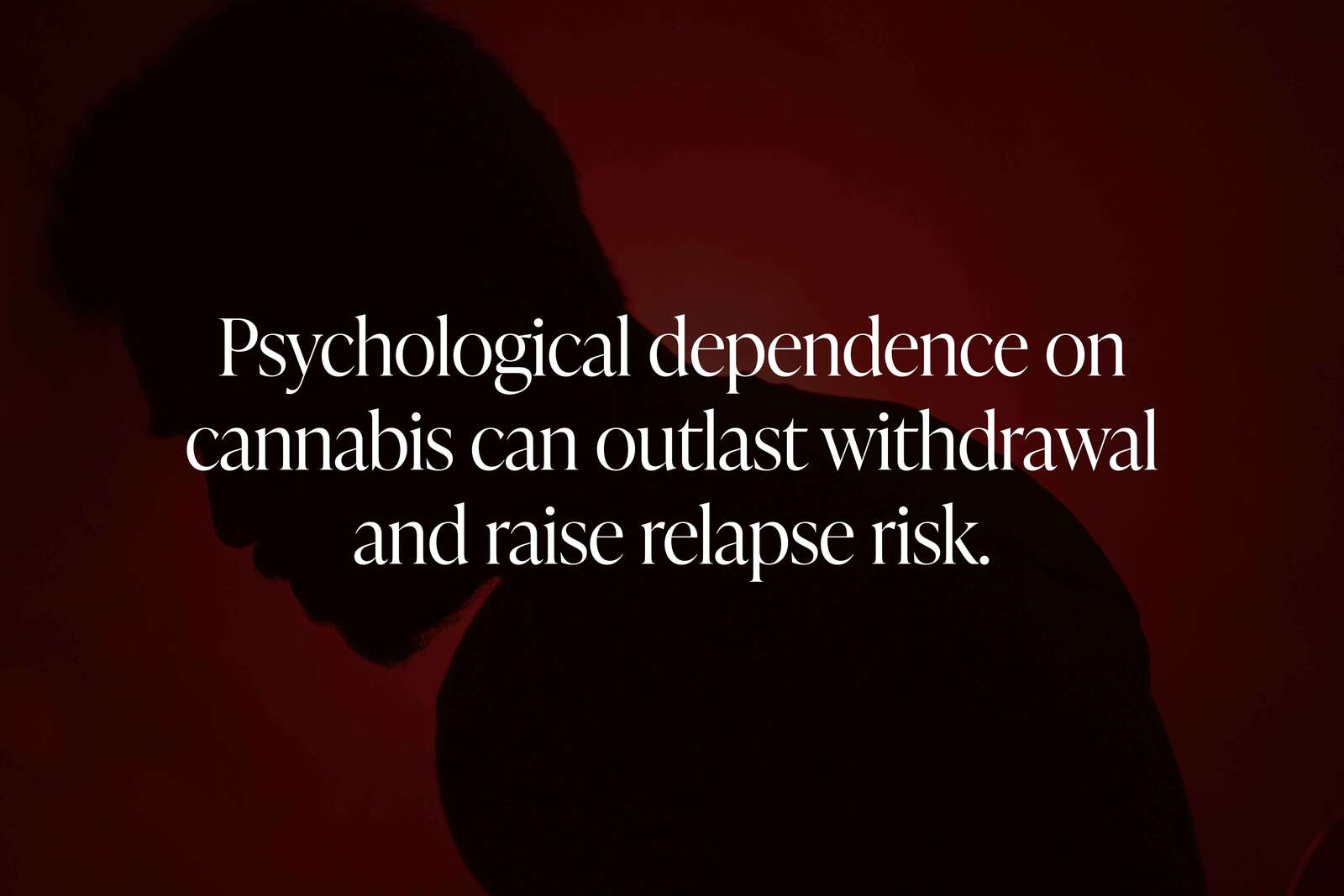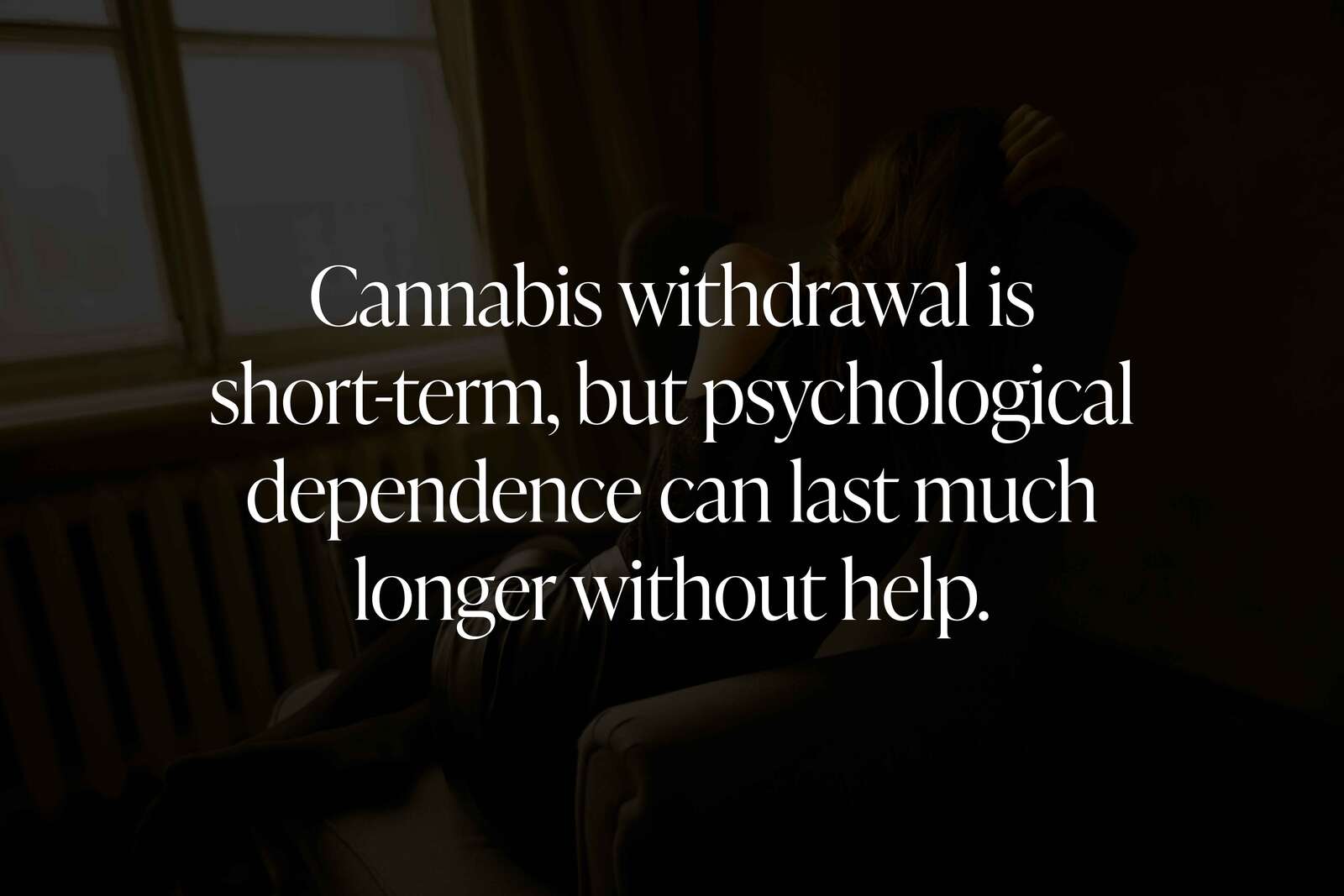Table of Contents
Cannabis is often perceived as a “safe” drug, and many people believe it cannot cause addiction. While it’s true that marijuana generally produces milder withdrawal symptoms compared to substances like alcohol, opioids, or nicotine, it can still be addictive, especially in terms of psychological dependence. Understanding whether cannabis is addictive physically, mentally, or both requires looking at how it affects the body, the brain, and long-term behavior.

The Difference Between Physical and Psychological Addiction
Physical addiction occurs when the body adapts to a substance and requires it to function normally. This leads to withdrawal symptoms when the substance is removed.
Psychological addiction involves craving the substance for the feelings or experiences it provides, such as relaxation, euphoria, or relief from stress.
Cannabis use can create both physical and psychological dependence, though the physical withdrawal symptoms are generally mild compared to other addictive drugs. The psychological aspect, the desire to use marijuana to manage emotions or escape from problems, is often stronger and harder to overcome.
How Cannabis Can Cause Dependence
The primary psychoactive compound in cannabis, tetrahydrocannabinol (THC), binds to cannabinoid receptors in the brain’s endocannabinoid system. This affects areas involved in mood, memory, pleasure, and decision-making.
Repeated THC exposure can alter the brain’s reward pathways, leading to tolerance. Tolerance means you need more cannabis to achieve the same effects, which can cause increased consumption and greater risk of developing a cannabis use disorder.
Signs of Cannabis Use Disorder
According to the Diagnostic and Statistical Manual of Mental Disorders (DSM-5), cannabis use disorder is diagnosed when a person meets certain criteria, such as:
- Using cannabis in larger amounts or over a longer period than intended.
- Unsuccessful attempts to cut down or quit.
- Spending excessive time obtaining, using, or recovering from cannabis use.
- Experiencing cravings or strong urges to use cannabis.
- Using despite knowing it causes social, occupational, or health problems.
- Giving up important activities in favor of cannabis use.
- Developing tolerance and/or withdrawal symptoms.
Physical Withdrawal Symptoms
While cannabis withdrawal is generally less severe than withdrawal from alcohol or opioids, it can still be uncomfortable:
- Irritability
- Insomnia or disturbed sleep
- Decreased appetite
- Headaches
- Sweating or chills
- Stomach discomfort
These symptoms typically begin within 24–72 hours after quitting and last about one to two weeks. The discomfort can drive individuals back to using cannabis, especially if they lack coping strategies.
Psychological Dependence: The Stronger Grip
For many users, the psychological side of cannabis addiction is the most challenging to overcome. Common signs include:
- Using cannabis daily to “feel normal.”
- Relying on cannabis to relax, sleep, or cope with stress.
- Feeling unable to have fun or be social without using.
- Thinking about cannabis frequently or planning the day around when you can use.
This mental reliance can persist long after physical withdrawal ends, making relapse a risk months or even years later.

Who Is Most at Risk?
Several factors increase the likelihood of developing cannabis addiction:
- Early Use: Starting before age 18 significantly raises the risk.
- Frequency of Use: Daily or near-daily use builds tolerance quickly.
- High THC Potency: Modern strains and concentrates can deliver much higher doses than in past decades.
- Mental Health Conditions: Anxiety, depression, and trauma-related disorders can make individuals more likely to self-medicate with cannabis.
- Genetics: A family history of substance use disorders can increase vulnerability.
The Role of High-Potency Cannabis
Cannabis today often contains 15–25% THC, compared to around 4% in the 1990s. Concentrates can exceed 80% THC. Higher potency increases the risk of developing tolerance, dependence, and negative mental health effects. With stronger products, addiction can develop faster and be harder to break.
Treatment for Cannabis Addiction
Quitting cannabis can be difficult, especially for heavy, long-term users. Evidence-based treatments include:
- Cognitive Behavioral Therapy (CBT): Helps individuals recognize triggers, change thought patterns, and develop healthy coping mechanisms.
- Motivational Interviewing (MI): Strengthens motivation to quit or reduce use.
- Contingency Management (CM): Uses incentives to encourage abstinence.
- Support Groups: Peer support offers encouragement and shared experiences.
Structured recovery programs like marijuana addiction treatment provide a combination of therapy, education, and relapse prevention strategies.
Building a Strong Recovery Plan
Recovery from cannabis addiction involves more than stopping use. A solid plan often includes:
- Identifying and avoiding triggers.
- Replacing cannabis use with healthy activities like exercise, hobbies, or social engagement.
- Developing a consistent sleep schedule.
- Learning stress management techniques.
- Building a support network of friends, family, and professionals.
The Bottom Line
Cannabis can be addictive both physically and psychologically, but the mental aspect is often more powerful and longer-lasting. Physical withdrawal is temporary; psychological dependence can persist for months or years without proper treatment. Recognizing the signs of dependence early and seeking help can prevent long-term negative effects on mental health, relationships, and daily functioning.

Connecting to Other Marijuana Topics
How Long Does Weed Stay in Your System After Quitting?
THC metabolites can be detectable for days to over a month, depending on frequency of use.
What Is THC and How Does It Affect the Brain?
THC binds to brain receptors, altering mood, memory, and perception in both short- and long-term ways.
How Long Does It Take to Detox from THC Naturally?
The detox timeline varies, but for heavy daily users, it can take more than a month to fully clear THC.
Can You Speed Up THC Detox and Pass a Drug Test?
Healthy habits can support the process, but only time fully removes THC from the body.











